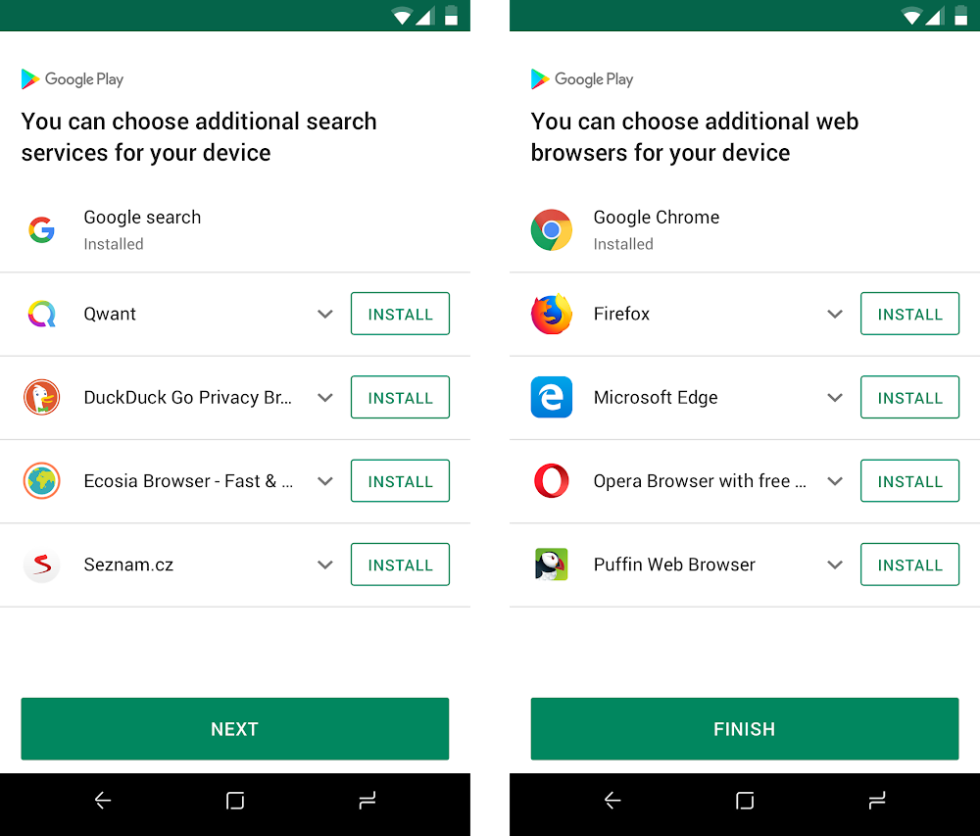-

The original ballot screens. These will pop up when users open the Play Store or during initial setup. [credit: Google ]
Google and the European Union have been fighting for several years over Android's default search engine. Just like when the EU took issue with Microsoft bundling Internet Explorer with Windows, the EU Antitrust enforcers don't want Google using its Android operating system monopoly to prop up Google Search and Google Chrome. The solution the EU came to—just like it did with Windows—is a "ballot" system that pops up during setup and asks users to pick a starting browser and search engine from a list. The only problem? Google was charging companies to appear in this list. It was basically an ad vector. In a blog post this week, Google says it will stop doing that.
The ballots that allowed users to pick a search engine and browser only have five spots, and with way more than five browsers and search engines available, deciding who gets on the list is a contentious subject. First, Google decided that preinstalled apps get sorted to the top of the list. As you can see in the screenshot, the preinstalled apps are almost always Google apps, so Google's decision here happens to work out really well for the company.
As for the other four slots, Google originally described them in 2019 by saying, "Apps that are not already installed on the device will be included based on their popularity and shown in a random order." Sometime after that, Google fell back on its instincts as the world's largest advertising company and thought, "Those are actually ad slots, and we should charge for them!"
Read 5 remaining paragraphs | Comments
https://ift.tt/3we4rv9
Comments
Post a Comment